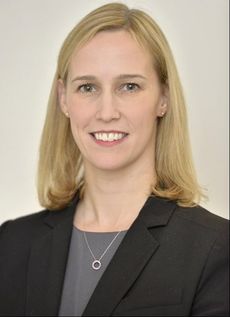 Reader feedback has led to this next profile of lawyer Nicole Chrolavicius. A reader wrote to inquire if I would be profiling any women who had successfully re-entered the practice of law after an extended absence, as she was seeking to return after a leave to raise her children. I reached out to my network and I am happy to say that this is the first of a few "successful return" stories that I will be posting. I hope these profiles will be helpful and encouraging to any lawyers contemplating a return to practice. Read on to learn more about Nicole, her career as a human rights lawyer, and how she transitioned back to law: 1. Tell me a little about your practice or business: I currently work as Counsel to Pooranlaw Professional Corporation, a leading social justice law firm dedicated to a just society for persons with disabilities and other marginalized groups. I also lecture in Constitutional Law and Legal Ethics in the Osgoode Professional Development LL.M. in the Canadian Common Law program. This dual role is perfect for me at this stage of my life and demonstrates that sometimes professional happiness resides in the road less travelled. By way of explanation, I actually took a five year break from the practice of law (from 2011 – 2016) to be home with my family. The arrival of our son Julien in 2011 was followed closely by the arrival of a surprise set of twins, Luke and Benjamin, in 2012. Having three boys in less than 16 months was not part of the plan; however, my husband and I embraced the “cute chaos” (our catch-phrase) and I decided to take a break from my career to explore a new role as mom to our young boys. Before that time, I worked for five years as a litigation lawyer in a boutique human rights law firm in Toronto where I represented clients in a range of human rights issues, particularly in the area of national security and racial discrimination. I was honoured to work on such interesting and novel cases including no fly lists, security certificates and extraordinary rendition. I was no stranger to an unusual career path even at that time, having just returned from London, England where I worked for two years running the charity arm of the U.K.’s leading human rights organization and providing free legal advice to members of the public. I ended up in England having left my Bay Street job to pursue a Masters of Law at Oxford University with a specialization in human rights. Sometimes, you have to follow a novel path, even where you aren’t sure where it will lead you. After five years at home with my boys, I was looking to re-enter the practice of law. They were off to kindergarten and I wanted to revive what had been an exciting legal career, albeit with the flexibility that allows me to continue to enjoy the many joys of parenthood. I leveraged the many wonderful connections with colleagues that I made over my years as a litigation lawyer and took up a part-time counsel position with an exciting law firm. Working at Pooranlaw Professional Corporation has been an incredible gift, as I am fortunate to work with the brightest legal minds and with people who I also consider to be my friends. The firm has allowed me to pursue a flexible work arrangement which means that I still get to be there when my son loses a tooth on the school picnic (true story), while taking up project-based legal work for the firm. The teaching is the icing on the cake. My colleagues at the firm had connections with Osgoode Hall Law School and one thing led to another. The academic in me is still so interested in the principles underlying the laws that govern us, and whether those laws could be otherwise. For that, teaching is a dream come true. It is also much more predictable than practicing, which helps with the unpredictability of my home life! 2. Why did you go to law school? I went to law school at the University of Western Ontario to explore the theory of the law. I was studying Philosophy at Queen’s University during my undergraduate degree in the late 1990s and I was learning that there were as many ways to conceptualize thoughts as there are ideas. I think that a legal education is very well suited to those of us, among others, who love to dig deep into the foundations of the law. At Oxford, my favourite courses were philosophical and I suppose it is no big surprise that I love to teach. I also remember learning about Socrates, whose dialogues revealed that the wisest people are those who admit to themselves what they do not know. I am humbled every day to be able to learn and to give back and inspire students in the same way that I was inspired as a young person. 3. How did you get to where you are today? Design? Chance? Both? There was definitely a mixture of design and chance at work. By design, I followed my true passions in legal theory and human rights. When I knew that working on Bay Street was not for me and that I wanted to pursue a career in human rights, I sought the education in human rights that would provide me with a reason for those few specialty human rights firms to give me an interview – a masters of law at Oxford University. I also worked hard as of course we must if we are to carve a path of our own making. However, there is some chance at play as well. I remember being warned against taking a professional step many times in the past. For example, I was told that if I quit my litigation job on Bay Street in order to do my masters, I would never work as a litigation lawyer again (that was not true). I was cautioned against taking so much time out of practice to be home with my boys (but here I am, working as a lawyer). Sometimes we need to take a chance and follow our passions and see what comes. 4. What is your most significant achievement? What are you proud of? I had the opportunity in my legal career to work on some incredible cases, but one in particular had the biggest impact on me as a lawyer and as a person and that is the case of Benamar Benatta. Mr. Benatta was an Algerian refugee who came to the Canadian border via the United States claiming refugee status a few dates before the September 11, 2001 terrorist attacks. On September 12, 2001, without a hearing or indeed any due process to speak of, he was placed in the back of a car by Canadian officials, driven over the border in the night and handed over to the FBI as a suspect in the attacks. He was completely innocent. Mr. Benatta spent five years in prison in the USA. After high level negotiations saw his return to Canada in 2006, I took up his case against the Government of Canada for his illegal transfer. His case eventually settled but not without a long legal fight for justice, including some key litigation steps including the following decision: Benatta v. Canada (Attorney General) 2009 CanLII 70999 (ON SC). His case is precisely why I decided to become a lawyer, and I was humbled and honoured to have worked in advancing his quest for justice. 5. What are some key challenges, and more importantly, opportunities for women in law? I think one of the key challenges (which should really be an opportunity) for women in law is to find flexible work. There was a time in my life when I could dedicate every waking hour to my legal practice (see the case of Mr. Benatta, above!). However, that changed when I had my family. I wanted to be able to continue my work as a lawyer but without sacrificing being a hands-on mom to my three boys. I am all for ways in which we women lawyers can support one another in finding flexible work (including job sharing and other flexible arrangements). In my opinion, the profession itself needs to rethink the ways in which we practice in order to attract and retain dedicated professional women. 6. What advice would you give a woman starting her legal career? Follow your true passions! While it may be easier to follow the safe path, true happiness sometimes lies in that curved, uncertain road less travelled. It may take some time to find it, but you’ll be glad you stayed the course. ------------------------------------------------------------------------------------------------------------------ Thank you Nicole for telling your story and providing some great advice. ICYMI: Previous posts profiled Charlene Theodore, Dyanoosh Youssefi, Shannon Salter, Bindu Cudjoe, Elliot Spears, Jessica Prince, Anu K. Sandhu, Claire Hatcher, Esi Codjoe, Kate Dewhirst, Jennifer Taylor, Rebecca Durcan, Atrisha Lewis, Vandana Sood, Kathryn Manning, Kim Hawkins, Kyla Lee, and Eva Chan. Sign up to have these profiles sent directly to your email address and stay tuned for the next post soon! I started this blog series because I was tired of hearing about women leaving law and wanted to hear about women leading in law. The "Women Leading in Law" series focuses on good news stories and highlights amazing women succeeding in the legal profession. Each post includes the profiled lawyer's answers to six questions. Prepare to be inspired! The series will continue until December 2018.
3 Comments
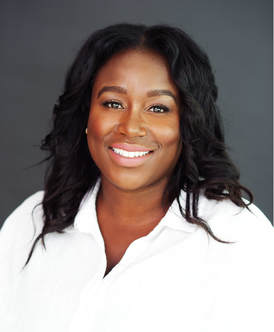 Our next "woman leading in law" is Charlene Theodore, who is currently working as Counsel for the Ontario English Catholic Teachers Association. I first met Charlene when she was a panelist on a program I helped organize for the Ontario Bar Association's Women Lawyers Forum on networking advice (if anyone can give advice on networking it is Charlene, she is really good at it!) Read on to learn more about Charlene's career path and her career advice targeted at in-house counsel: 1. Tell me a little about your practice or business: I’m a lawyer with a background in public policy and government relations and I have devoted my career to the protection of people in the workplace and in society. I articled and then worked as Policy Counsel for the African Canadian Legal Clinic. I went on to represent unions, acting as Counsel to the Ontario Nurses’ Association, and now work Counsel for the Ontario English Catholic Teachers Association (OECTA). I advise management and staff on the impact of legislative and regulatory changes in the education sector and provide legal assistance to teachers who are disabled or injured at work. I also advise on issues related to benefits and pensions. I love my job and I love that my work has a positive impact on employees of predominantly female workforces. 2. Why did you go to law school? I was a such a bookworm as a kid. When I was 15 or 16, I read “The Steven Truscott Story”. I remember the feeling of horror that someone my age could be wrongfully convicted and sentenced to death by hanging. You would think it would have driven me towards criminal law, but what I took from that story was the power that lawyers and judges had to right wrongs in any area of society. Once I finished the book, I spoke to my guidance counsellor to find out how I could get into the profession. 3. How did you get to where you are today? Design? Chance? Both? I am very happy with what I have achieved and where I am in my career today. I got to this place by trusting my instincts, keeping things in perspective, being unafraid to make choices that worked for me as opposed to what was expected of me. One of the best decisions I made was to accept an offer from the International Bar Association for an internship in their International Commercial Law Program in the summer of my second year. The conventional thing to do would be to take a job at home that would lead to an articling position. Accepting that job took me out of the running for those coveted summer jobs at home, and also paid nothing but a stipend for living expenses. It exposed me to the the intersection of human rights law and commercial law in the global economy. I came home from England with no clue as to where I was going to article but with a wealth of experience and no regrets. My experience in the UK did lead to a great articling position where I had the opportunity to advocate against racism before the United Nations’ Committee on the Elimination for Racial Discrimination, as well as federal and provincial legislative committees. My specialized human rights experience opened the doors for me to do the work I do now. 4. What is your most significant achievement? What are you proud of? I’ve never shared this publicly before but in my third year of law school I was sidelined with a bout of severe depression and anxiety. Those feelings of extreme sadness, the paralyzing panic I would feel before every exam - I thought they were just the normal reactions to the pressures of law school. Having to deal with a diagnosis like that in the final year of law school and manage this new reality and the stigma that comes with it during articling and at the start of my career was too challenging to articulate. That I made it through without derailing my career and ended up happy and healthy in both my professional and personal life is my most significant achievement. I have “pinch me” moments of gratitude daily because I know how close I was to losing my career before it even started. 5. What are some key challenges and opportunities for women in law? I’d like to use this answer to speak to women working in-house or those aspiring to an in-house role. This work can be very rewarding but also very isolating. You can very easily become disconnected from issues that affect the Bar as a whole. Additionally, when you work in house you have to navigate both the legal landscape and the particular corporate landscape of that organization. Both of which can present challenges for women in male dominated workspaces. I think it’s important to make sure you have a presence outside of the legal department. Sit in on meetings, offer to assist work groups and committees, - it will inform your legal work and dispel the common notion that we’re needed for “just” transactional work. It’s also important to develop relationships with other in house counsel and other lawyers. They can be an important resource for how to manage your client relationship. Volunteer for a Bar or lawyer association and get to know lawyers outside of your company, industry or sector. I hope we are getting closer to the point where the opportunities are starting to outweigh the challenges. Until we get there, women need to be vigilant about advocating for themselves at work and making sure they are not sidelined when professional opportunities arise. 6. What advice would you give a woman starting her legal career? I hear from a lot of young women in our profession who are unhappy with their work or the pace of advancement in their field. You need to put in the time and gain experience to have full agency over your career - you can’t circumvent that. That being said, earning a law degree in this country bestows privilege. You didn’t put in all of that work to be stuck in a job you hate. Always know that you have options - at every single stage of your career. Speaking specifically to black female lawyers, don’t ever lose your connection to your community. Seek out networks with other black female lawyers and other professionals that you can rely on while you navigate your career path. The reality is that path and your obstacles will be different than those of other women. When you make it, reach back and create opportunities for other people of colour whenever you can. ------------------------------------------------------------------------------------------------------------------ Thank you Charlene for taking the time to provide such honest and open answers. ICYMI: Previous posts profiled Dyanoosh Youssefi, Shannon Salter, Bindu Cudjoe, Elliot Spears, Jessica Prince, Anu K. Sandhu, Claire Hatcher, Esi Codjoe, Kate Dewhirst, Jennifer Taylor, Rebecca Durcan, Atrisha Lewis, Vandana Sood, Kathryn Manning, Kim Hawkins, Kyla Lee, and Eva Chan. Sign up to have these profiles sent directly to your email address and stay tuned for the next post soon! I started this blog series because I was tired of hearing about women leaving law and wanted to hear about women leading in law. The "Women Leading in Law" series focuses on good news stories and highlights amazing women succeeding in the legal profession. Each post includes the profiled lawyer's answers to six questions. Prepare to be inspired! The series will continue until December 2018. 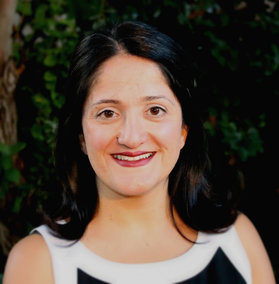 I first met our next lawyer in this series, Dyanoosh Youssefi, in 2014 when she was running for the position of City Councillor for Ward 16 (soon to be Ward 14). What I liked (and like) about Dyanoosh is that she is a politician who seeks to improve the lives of all of Toronto's citizens (not just the ones who may vote for her). While Dyanoosh lost the 2014 election, I am happy that she has decided to run again (election day: October 22, 2018). We need more women in politics and a more diverse and inclusive city council. Dyanoosh would be a great addition. Read on to learn more about Dyanoosh's professional roles (lawyer, writer, politician, non-profit founder....) and how she fit a "traditional" life into her "untraditional" career path: 1. Tell me a little about your practice or business: I do a lot of different things and integrate social justice issues into everything that I do. I am a non-profit leader, a legal studies professor, a writer, a social justice advocate, a life time volunteer, and a former criminal defence lawyer. Four years ago, I added politician to that list. My career path is untraditional, unpredictable, and risky, but I am compelled to take this path. Since a young age, I’ve had the desire -the need- to make the world a better place. My life and my career path have always been about the “how.” When I was a criminal defence lawyer, I cherished the work- helping some of the most disenfranchised and marginalized people in society is an honourable job. I am a writer and I love it- I believe that raising awareness is one of the most effective and honest methods of affecting change. My hope is that my occasional writing on criminal and social justice issues encourages greater public awareness, engagement, and ultimately, change. I founded and run All IN, a non-profit that advocates for inclusive communities. Because we are a start up and it is one of the many things I do, All IN is run on a meager budget and exclusively through volunteerism. I am also a (hopefully soon to be elected) politician. Politics is the culmination of my various volunteer, advocacy, and outreach efforts. It is, for me, the best way to build inclusive communities and to effect long-term change for all of our benefit. I ran for Toronto City Council in 2014 (came pretty close to being elected) and am running again now. 2. Why did you go to law school? Cliché but true: to make the world a better place. Before- and evening during- law school, I didn’t have a particular job in in mind that would allow me achieve my goals, but I knew that law school could give me some of the skills as well as the credibility I needed to get close. 3. How did you get to where you are today? Design? Chance? Both? A lot of idealism, plenty of purpose, perseverance, and work, work, work. The alternative of taking a more traditional route (which would allow for more financial stability as well as a more accepted measure of “success”) was just not an option for me. In 1983, when I was 12, my family escaped from Iran and emigrated to Canada via Spain. We came with very little, and my parents worked very hard. I did not have all the material things that my peers had, but we certainly had what we needed. I have not had family or other connections that lead me to law or to politics. The paths I’ve taken are completely untraditional, and often puzzling, to my family. At the same time, compared to other young feminist social justice-oriented lawyers I know, my choices were unusual. None of them took off the amount of time I did to raise their children. One even told me it was a terrible mistake. I often felt out of place with my other feminist colleagues, because I took off years from my practice and a fully engaged public life to raise my kids. That decision has meant that I constantly have to reinvent myself as I enter new fields that can accommodate my schedule and fulfill my professional needs. I believe that if you are both committed to having a “public” life and are traditional, in that you want to be home with your kids when they are little, you are in for a tough battle, both internally, and with a work force that cannot recognize or appreciate a “renaissance woman’s” resumé. Fortunately, I have a supportive family who has helped me with my children. I had a partner who supported my dreams, though we certainly had our (gender-based) challenges in dealing with family and careers. And I am tremendously fortunate to have had amazing colleagues who have given me support and mentorship. Without their guidance and friendship, everything would undoubtedly have been much more difficult. In some ways, life would have been easier if I had gone to Bay Street. I may also have achieved a higher status and had greater recognition if I stuck to one career path all these years. But Bay Street was never the reason I went to law school. And recognition can come at any stage in life. In any event, I always say that women live longer so that we have more time to do all the things we want to do, and to make up for the time that many of us spend out of public life in order to raise a family! 4. What is your most significant achievement? What are you proud of? Maybe it’s still on its way? At least I hope that it is. I am proud of many things. I am proud of having genuinely made a difference in my clients’ lives, when I practiced as a criminal defence lawyer. I am proud of having started All IN, a non-profit that advocates for inclusive neighbourhoods, and brings together the interconnected issues of housing, employment, poverty, policing, criminal justice, and equity and fairness. I am proud of having run for public office in 2014, and now again, in 2018. I also feel pride in persevering, continuing to care, and staying committed to making the world a better place, despite the internal and external challenges that always persist. 5. What are some key challenges, and more importantly, opportunities for women in law? The challenges facing women reflect those that face society and many other previously male-dominated professions. Women still are not often heard or taken as seriously in the boardroom (I have faced this in various settings.) Women of colour often face additional obstacles, of course. And women who want to raise families still carry a greater burden and face more challenges than their male counterparts. Of course, things are changing, particularly as more women assert themselves and more men want to have a more meaningful role in their families and an equal partnership. What I see though is more entrepreneurship, where women (like Flex Legal’s founder), design and define their own work outside the traditional parameters of law. This is certainly an area where there are more opportunities for all the exceptional and creative women in law. My hope is to see more of this innovative entrepreneurship in social justice fields as well. 6. What advice would you give a woman starting her legal career? Look deep within your heart. What is the thing that you wanted to do as a child? What is the thing that still makes you cry? What is the thing that tugs at your heart? Pursue THAT. ----------------------------------------------------------------------------------------------- Thank you Dyanoosh for your comments and for sharing your personal story and experiences with us. ICYMI: Previous posts profiled Shannon Salter, Bindu Cudjoe, Elliot Spears, Jessica Prince, Anu K. Sandhu, Claire Hatcher, Esi Codjoe, Kate Dewhirst, Jennifer Taylor, Rebecca Durcan, Atrisha Lewis, Vandana Sood, Kathryn Manning, Kim Hawkins, Kyla Lee, and Eva Chan. Sign up to have these profiles sent directly to your email address and stay tuned for the next post soon! The "Women Leading in Law" series focuses on good news stories and highlights amazing women succeeding in the legal profession. Each post includes the profiled lawyer's answers to six questions. Prepare to be inspired! The series will continue until December 2018. 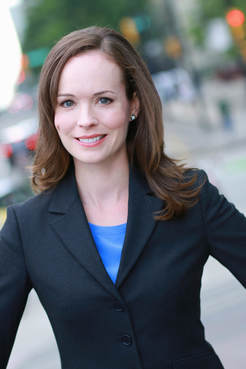 The next lawyer featured in this series is another great example of someone who is using her legal degree in a new and exciting way outside of the traditional practice of law. Shannon Salter is the Chair of the groundbreaking Civil Resolution Tribunal in British Columbia, an online dispute resolution forum accessible to the public for small disputes. It is truly addressing the significant access to justice problem we face in this country. Read on not only to learn more about this fantastic initiative, but also about Shannon's wonderful advice to new lawyers and her three "calls to action" for women in law: 1. Tell me a little about your practice or business. I’m the Chair of an access to justice initiative called the Civil Resolution Tribunal (CRT). It’s the first online tribunal in Canada, which helps people resolve everyday small claims and condominium disputes, wherever, whenever it works for them. We give people free legal information and tools, and support them to reach an agreement through negotiation and mediation. Where people can’t agree, tribunal members make a binding decision, which is enforceable as a court order. The whole process is simple, using plain language, and can be done on a smartphone from your couch. Our goal is to transform the justice system by bringing it to the public and building it around their needs. The CRT is in a period of intense growth. This month the provincial government announced that the tribunal’s jurisdiction will expand to include a significant number of motor vehicle personal injury disputes beginning next April. 2. Why did you go to law school? Like many of us, I went to law school because I thought it was a meaningful way to help people protect their rights. In practice, and particularly through pro bono work, I realized that legal rights are meaningless unless there are accessible ways to enforce them. That’s why I’ve committed my career to finding ways to transform and reorient the civil justice system to meet the needs of the people to whom it belongs. 3. How did you get to where you are today? Design? Chance? Both? I think a little bit of both, with the help of a very supportive spouse and a healthy dose of luck as well. I started my career in civil litigation, doing a lot of pro bono work, before undertaking an LLM at the University of Toronto in 2010. When I returned to Vancouver, with a baby in tow, I decided to focus on administrative law and quasi-judicial work and was appointed Vice Chair of the Workers’ Compensation Appeal Tribunal. I think all of these experiences, combined with teaching administrative law and legal ethics at Allard, provided a diverse mix of experience, perspectives, and skills which were very helpful in building the first online tribunal in Canada (and possibly the world!). I obviously had no idea I would be doing this when I was in law school, but being part of the CRT is my dream job and I pinch myself every day that I get to work with wonderful people on issues I care about deeply. I’m very lucky. 4. What is your most significant achievement? What are you proud of? I am very proud of the Civil Resolution Tribunal, as you can probably tell. Behind this tribunal is an incredibly committed, diverse, thoughtful, and creative team that I’m grateful to work with every day. The tribunal is the first of its kind in part due to the use of technology, but I’m most proud of our non-technology innovations, which mostly have to do with creating a culture of inclusivity, learning, and continuous improvement. We are pioneering a fundamentally different model for the justice system. One that focusses on empowering people to be active participants in the process, and supports them to resolve problems collaboratively. One that recognizes that people have a context, and strives to accommodate their needs in order to treat them with dignity and respect throughout the process. The CRT is showing that there is a better way, and it’s so exciting to see our model being expanded in British Columbia and also adopted in other jurisdictions, including in the United Kingdom, the United States, and Australia. 5. What are some key challenges and, importantly, opportunities for women in law? Women in the legal profession face many barriers, from all different directions, and in my view the situation hasn’t improved much in decades, despite the work of some incredible pioneering women, and despite many reports detailing the obstacles women face. Women in law deal with harassment and discrimination on a daily basis. We disproportionately bear the burden of balancing family and work obligations, and we are set up to fail on both fronts. We are regularly re-explained, undermined, talked over, underestimated, and overanalyzed. And, of course, all of these issues disproportionately impact women of colour, Indigenous women, LGBTQ folk, and women with disabilities, among others. That said, I think we have some tremendous opportunities in this moment. The #metoo movement has brought an increased awareness of some of these issues, and a willingness to confront them. I think there’s a real opportunity for women to shift power in the legal profession towards equality and inclusivity. I recently talked about three ways we can do this in a keynote at the Women in the Law dinner. It’s posted here, but basically my calls to action are these: 1) Apply for everything. Don’t wait until you think you’re more senior, more ready, more experienced, or more qualified. Women underestimate their own abilities and qualifications and I see this every time I assess a candidate pool or do an interview panel. 2) Invite other women to apply for everything. Often women don’t see themselves in positions of authority, and are less likely to apply for these roles than men. An invitation from another woman can be the vote of confidence and nudge we need to throw our hat in the ring. 3) Be the persistent, unapologetic voice of accountability. In every organization I’m a part of, whether it’s the CRT or a board position, I raise equality and diversity issues in a matter-of-fact, helpful way every single time until they have been addressed. There’s usually not all that much resistance to thinking about these issues, it’s just that no one has ever put them on the agenda. Sometimes the inequalities women face seem so big and insurmountable that people don’t know where to start, or even that they might, unwittingly, be part of the problem. So use your spot at the table to make inequality visible, and make it impossible to ignore. 6. What advice would you give a woman starting her legal career? Apply for everything (see above)! But also, identify women in law you admire and invite them for coffee. This is another thing that men seem to have less trouble doing than women. We think we’re bothering people, but most of the time, people are flattered that you admire their work and are happy to share their experience. I know I am, and I almost always make time to meet with young lawyers. Ask how they sought out opportunities, what they wish they had known when they were just starting out, what they like and dislike about their work, and how they manage their non-work obligations. Share the kind of work you’re interested in and ask them to keep you in mind if they see related opportunities come up. This is particularly important if you are choosing a non-traditional career path. Follow up with a thank you and keep in touch. My theory is that most mentors aren’t volunteers; instead, they are adopted by the mentee. I learned the value of mentorship later than I should have, but still, most of the fantastic lessons and opportunities in my career have come through some truly incredible women mentors, and I will always be grateful to them. --------------------------------------------------------------------------------------------------------------------- Thank you Shannon for taking the time to answer these questions and for your wonderful insights and advice! ICYMI: Previous posts profiled Bindu Cudjoe, Elliot Spears, Jessica Prince, Anu K. Sandhu, Claire Hatcher, Esi Codjoe, Kate Dewhirst, Jennifer Taylor, Rebecca Durcan, Atrisha Lewis, Vandana Sood, Kathryn Manning, Kim Hawkins, Kyla Lee, and Eva Chan. Sign up to have these profiles sent directly to your email address and stay tuned for the next post soon! The "Women Leading in Law" series focuses on good news stories and highlights amazing women succeeding in the legal profession. Each post includes the profiled lawyer's answers to six questions. Prepare to be inspired! The series will continue until December 2018. If you have suggestions of women to be profiled please reach out. |
Erin C. Cowling is a former freelance lawyer, entrepreneur, business and career consultant, speaker, writer and CEO and Founder of Flex Legal Network Inc., a network of freelance lawyers.
Categories
All
Archives
December 2022
|
|
(C) 2014-2024 Cowling Legal. All rights reserved.
|
Please note I am not currently practicing law.
Information on this website does not constitute legal advice and is for informational purposes only. Accessing or using this website does not create a solicitor-client relationship. See website Terms of Use/Privacy Policy. info@cowlinglegal.com
3080 Yonge Street, Suite 6060 Toronto,ON M4N 3N1 (appointment only) |
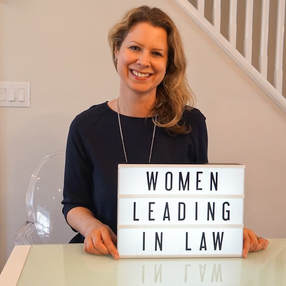
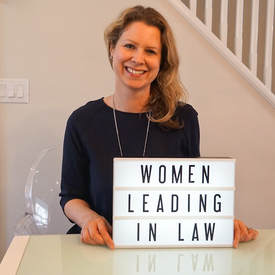
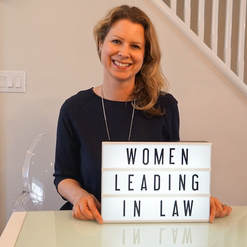
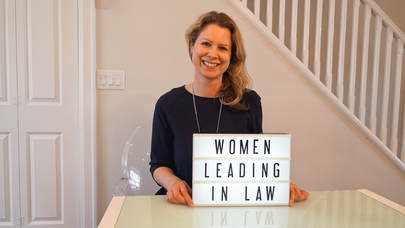
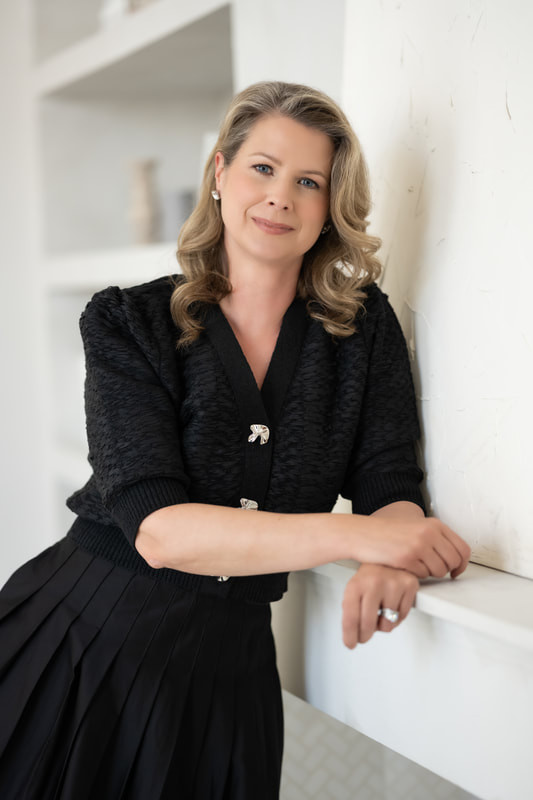





 RSS Feed
RSS Feed
